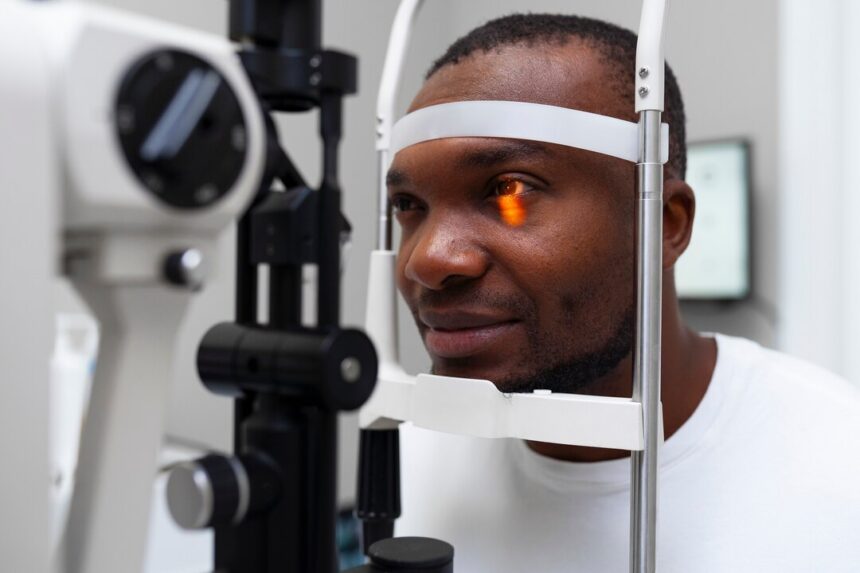Glaucoma is a progressive eye condition characterized by damage to the optic nerve, often leading to vision loss if left untreated. While there is no cure for glaucoma, there are several strategies available to manage the condition effectively and preserve vision. In this article, we’ll explore ten ways to manage glaucoma, empowering individuals with this condition to take control of their eye health and maintain optimal vision.
1. Regular Eye Exams:
Routine eye exams are essential for monitoring the progression of glaucoma and assessing the effectiveness of treatment. Regular visits to an eye care professional allow for early detection of changes in intraocular pressure and optic nerve damage, enabling timely intervention to prevent vision loss.
2. Medication Adherence:
Following your prescribed treatment regimen is crucial for managing glaucoma effectively. This may include using medicated eye drops as directed by your ophthalmologist to reduce intraocular pressure and slow the progression of the disease. Adhering to your medication schedule helps maintain consistent eye pressure levels and prevents further damage to the optic nerve.
3. Lifestyle Modifications:
Certain lifestyle factors can impact the progression of glaucoma. Adopting a healthy lifestyle, including regular exercise, maintaining a balanced diet rich in antioxidants and omega-3 fatty acids, and avoiding smoking, can help manage glaucoma and support overall eye health.
4. Stress Management:
Stress can elevate intraocular pressure, potentially exacerbating glaucoma symptoms. Implementing stress-reducing techniques such as meditation, deep breathing exercises, yoga, or engaging in hobbies and activities that promote relaxation can help manage stress levels and protect vision.
5. Protective Eyewear:
Protecting your eyes from injury is essential when managing glaucoma. Wear appropriate eye protection, such as safety goggles or sunglasses, during activities that pose a risk of eye trauma, such as sports or yard work. Preventing eye injuries reduces the likelihood of exacerbating glaucoma symptoms and vision loss.
6. Complementary Therapies:
Some complementary therapies may complement traditional glaucoma treatments and support overall eye health. Discussing options with your healthcare provider, such as acupuncture, nutritional supplements, or herbal remedies, may offer additional benefits in managing glaucoma symptoms.
7. Monitor Intraocular Pressure:
Regular monitoring of intraocular pressure is critical for managing glaucoma effectively. Your ophthalmologist may recommend self-monitoring at home using a tonometer or scheduled office visits for pressure checks. Maintaining optimal intraocular pressure levels helps prevent further damage to the optic nerve and preserve vision.
8. Education and Support:
Educating yourself about glaucoma and seeking support from healthcare professionals, support groups, or online communities can be invaluable in managing the condition. Understanding your diagnosis, treatment options, and lifestyle modifications empowers you to actively participate in your eye care and make informed decisions about your health.
9. Surgical Interventions:
In some cases, surgical interventions may be necessary to manage glaucoma effectively. Procedures such as laser therapy, trabeculectomy, or minimally invasive glaucoma surgery (MIGS) can help lower intraocular pressure and slow the progression of the disease, reducing the risk of vision loss.
10. Regular Follow-Up Care:
Continued monitoring and follow-up care are essential components of managing glaucoma long-term. Schedule regular appointments with your ophthalmologist to assess the progression of the disease, adjust treatment as needed, and address any concerns or changes in symptoms promptly.
Managing glaucoma requires a multifaceted approach that incorporates regular eye exams, medication adherence, lifestyle modifications, and proactive self-care strategies. By implementing these ten strategies for managing glaucoma effectively, individuals can take control of their eye health, slow the progression of the disease, and preserve vision for years to come. Remember to consult with your healthcare provider for personalized guidance and recommendations tailored to your specific needs and circumstances.










